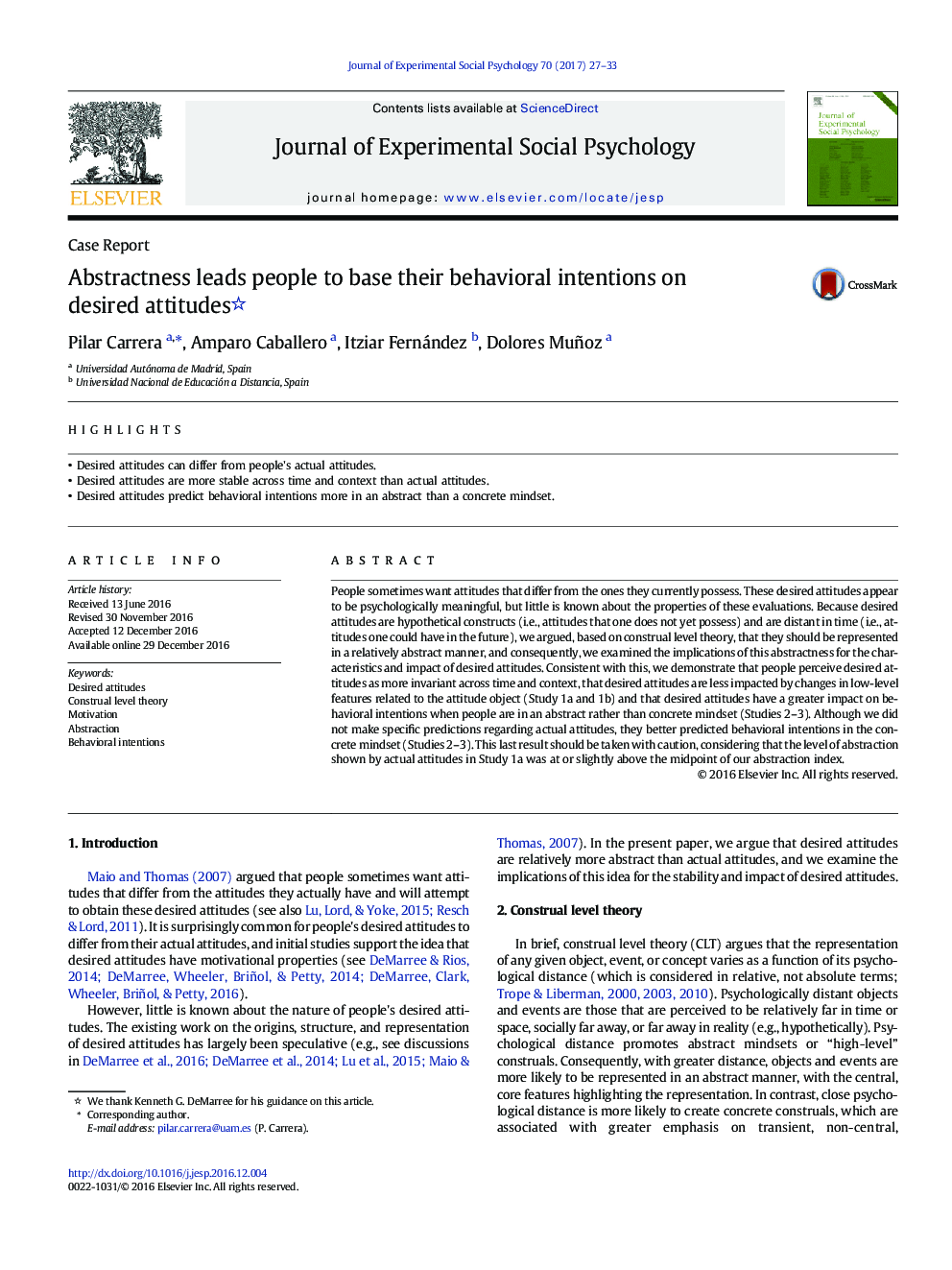| کد مقاله | کد نشریه | سال انتشار | مقاله انگلیسی | نسخه تمام متن |
|---|---|---|---|---|
| 5045651 | 1475853 | 2017 | 7 صفحه PDF | دانلود رایگان |
• Desired attitudes can differ from people's actual attitudes.
• Desired attitudes are more stable across time and context than actual attitudes.
• Desired attitudes predict behavioral intentions more in an abstract than a concrete mindset.
People sometimes want attitudes that differ from the ones they currently possess. These desired attitudes appear to be psychologically meaningful, but little is known about the properties of these evaluations. Because desired attitudes are hypothetical constructs (i.e., attitudes that one does not yet possess) and are distant in time (i.e., attitudes one could have in the future), we argued, based on construal level theory, that they should be represented in a relatively abstract manner, and consequently, we examined the implications of this abstractness for the characteristics and impact of desired attitudes. Consistent with this, we demonstrate that people perceive desired attitudes as more invariant across time and context, that desired attitudes are less impacted by changes in low-level features related to the attitude object (Study 1a and 1b) and that desired attitudes have a greater impact on behavioral intentions when people are in an abstract rather than concrete mindset (Studies 2–3). Although we did not make specific predictions regarding actual attitudes, they better predicted behavioral intentions in the concrete mindset (Studies 2–3). This last result should be taken with caution, considering that the level of abstraction shown by actual attitudes in Study 1a was at or slightly above the midpoint of our abstraction index.
Journal: Journal of Experimental Social Psychology - Volume 70, May 2017, Pages 27–33
